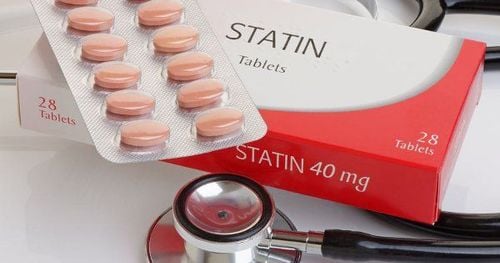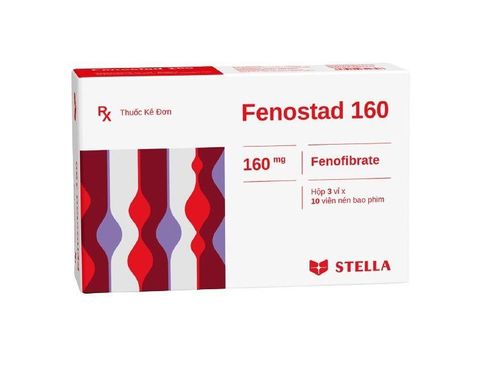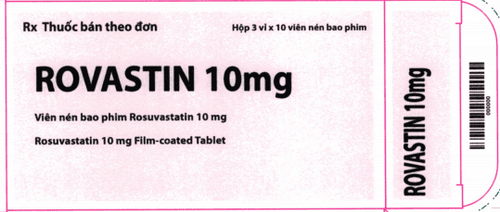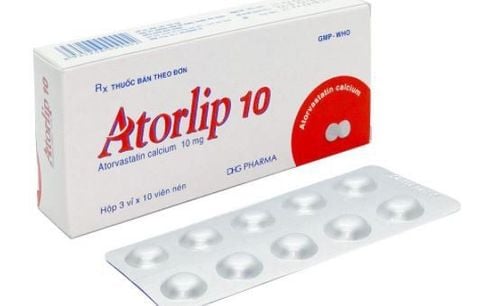This is an automatically translated article.
Article by Doctor Nguyen Van Phong - Cardiovascular Center, Vinmec Times City International General Hospital.
When a person has high "blood lipids", it means that in his or her blood lipids are disordered: some components of blood fat are either too much or too little. Dyslipidemia is very likely to affect health, and can even be dangerous.
1. What does high blood fat do to the cardiovascular system?
People with high blood cholesterol have a 2 - 3 times higher rate of coronary heart disease than people with normal cholesterol (normal blood cholesterol is less than 5.2 mmol/l), which is of great concern. to bad cholesterol. If total cholesterol is increased or bad cholesterol is increased, or both, the risk of cardiovascular disease is higher due to atherosclerosis. Atherosclerosis will cause arterial diseases in different organs: Coronary stenosis causes angina, myocardial infarction; cerebrovascular stenosis causing cerebral ischemia, stroke; Lower extremity artery stenosis causes claudication pain, limb necrosis...
In addition, when atherosclerotic plaques fall off, they will follow the blood flow, causing coronary artery blockage, causing sudden death or cerebral artery occlusion. Stroke. There is a close relationship between cholesterol and triglycerides, so when triglycerides increase, the type of LDL-C and VLDL-C also increases. When triglycerides increase, in addition to causing atherosclerosis, they also have the ability to make the liver fatty by accumulating lipids in the liver by losing the balance between lipids entering the liver and lipids leaving the liver. The disadvantage of fatty liver is that the liver will limit the production of apoprotein, so the amount of fatty acids will enter the liver too much, making the liver more fatty. In addition, elevated triglycerides also have the risk of causing acute pancreatitis, which is a very dangerous disease requiring prompt intervention.
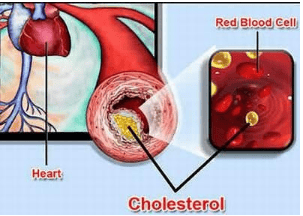
Những người có lượng cholesterol trong máu cao có tỷ lệ mắc bệnh mạch vành cao gấp 2 - 3 lần so với người có lượng cholesterol bình thường
2. Some measures to regulate blood fat
Hyperlipidemia may be closely related to an unreasonable daily diet and a number of other related factors. People who eat a lot of animal fat, animal viscera, egg yolks, whole milk, butter... will be at risk of hyperlipidemia.
Therefore, should limit the intake of foods containing fats and cholesterol such as butter, whole milk, bacon, coconut oil, palm oil, animal organs, chicken skin, duck skin, gooseskin.
Limit the use of foods containing trans-fat such as fried foods, especially fried foods with used oils and fats such as crackers, fried meat, instant noodles.
People who are obese should have a slimming diet. Should lose weight slowly, not in a hurry, do not use pharmaceuticals, herbal medicines, functional foods of unknown origin, unlicensed. If you want to lose fat, the easiest thing to do is to increase movement such as exercise, eat less calories (need to reduce about 250 calories/day). If you don't have high blood pressure and are in good health, you can do some heavy lifting such as walking at a fast pace, running at a moderate pace for a few hundred meters or cycling. For people who are addicted to cigarettes, beer, and alcohol, they need to gradually reduce their use to quit completely. Periodic medical examination is recommended and should be monitored at a medical facility. In cases where a reasonable diet and regular exercise regimen has been applied, but the blood fat is not improved or the improvement is not significant, the doctor will prescribe medication to reduce blood fat. Absolutely do not automatically buy medicine for use without a doctor's prescription. Using lipid-lowering drugs requires close monitoring of liver enzymes (SGOT and SGPT) and a number of other biochemical indicators.
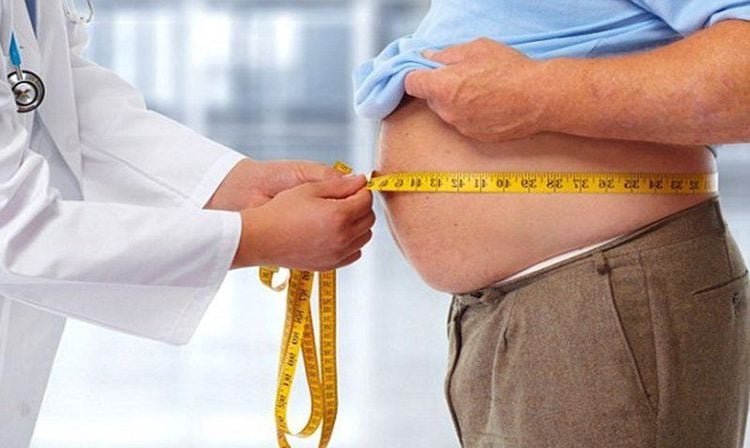
Người bị béo phì nên có chế độ ăn kiêng
3. What are the fats in the blood?
Blood lipids include a number of main substances such as cholesterol, triglycerides, lipoproteins, apoproteins, free fatty acids and phospholipids. In these components, cholesterol, lipoproteins, apoproteins and triglycerides play a very important role. Cholesterol is mainly made by the liver from saturated fats. Every day, about 1g of cholesterol is created and mixed with the blood stream throughout the body. In addition, a small part of cholesterol is also absorbed from foods such as milk, egg yolks, animal fats, brains, animal intestines, shrimp... Triglycerides are created when fatty acids are absorbed through the liver after being absorbed by the liver. , is converted into cholesterol by the liver, the amount of free fatty acids that is not metabolized by the liver will be in excess and become triglycerides. The lipoprotein component is formed in the liver by the combination of triglycerides with apoprotein (apoprotein made by the liver). Lipoproteins come in two forms: low-density lipoprotein (LDL-c) and also very low-density lipoprotein (VLDL-c) and high-density lipoprotein (HDL-c). Type LDL-C and VLDL-C are two types of bad cholesterol and very bad because they cause atherosclerosis, especially coronary arteries and cerebral arteries. In contrast, HDL-c is a good type of cholesterol because it has the ability to carry cholesterol out of the artery walls, return to the liver and then excrete it from the body.To monitor and treat dyslipidemia as well as related complications, you can contact the nationwide Vinmec Health System Hotline, or register for an online examination HERE.







